Fascinating Facts About Winter Babies, According to Science
Are you patiently waiting for your winter due date to arrive or watching a winter-born child grow? Are you or is someone you love a winter baby? Or maybe you’re simply thinking about getting pregnant and doing your best to plot out the best “birth season” for your baby-to-be.
Well, far be it from us to say that winter babies are the very best of all, but we’ve certainly found some super-cool and fascinating science-based facts about individuals who celebrate their birthdays in December, January and February. Take a look, and decide for yourselves.
Healthy Fetal Development

A study published in the “American Journal of Human Biology” found that infants born in autumn and winter had a significantly increased birth weight and gestational age (number of weeks baby was in uterus), as well as significantly lower prevalence rates for fetal growth restriction (fetal weight below the 10th percentile for gestational age) and premature birth.
Ready to Crawl

According to a study by the University of Haifa, the season of a baby’s birth influenced the child’s motor development during its first year.
The research found that babies who were born in the “winter” (December to May) started crawling, on average, about five weeks earlier compared to babies born in the “summer” (June to November).
Measure Longer at Birth
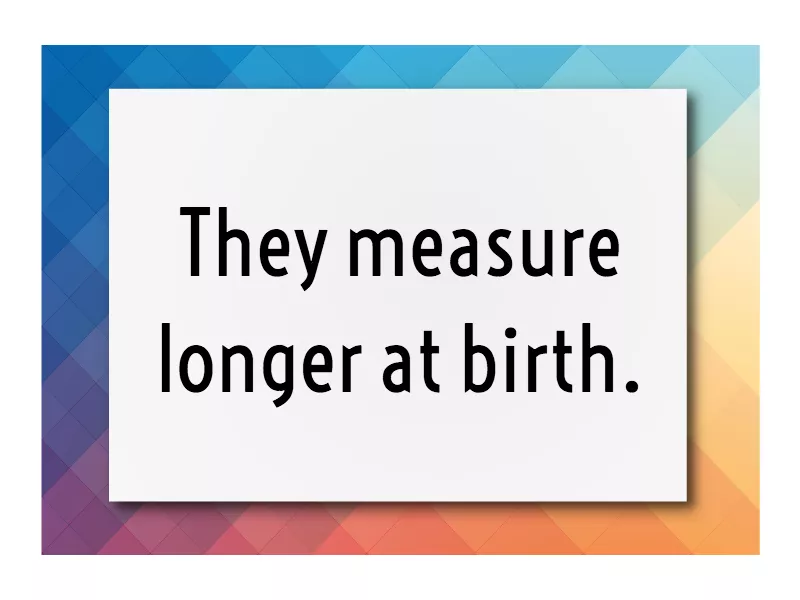
When compared to summer- and autumn-born infants, winter- and spring-born infants were significantly longer at birth, found a study from Harvard University.
Bigger as Seven-Year-Olds

The winter- and spring-born infants mentioned above, at age seven, were significantly heavier, taller and had larger head circumferences than summer- and autumn-born infants, found the same study from Harvard University.
Long-Range Eyesight
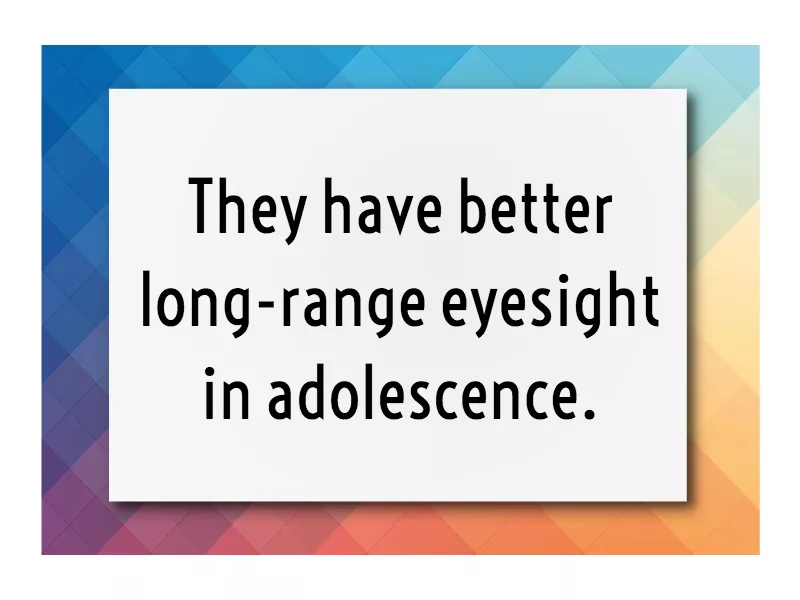
A study published in the American Academy of Ophthalmology found eyesight variations in adolescents, age 16 to 22 years old, based on their birth month.
They saw the lowest prevalence of moderate and severe myopia (nearsightedness) in adolescents who were born in December and January.
Less Irritable
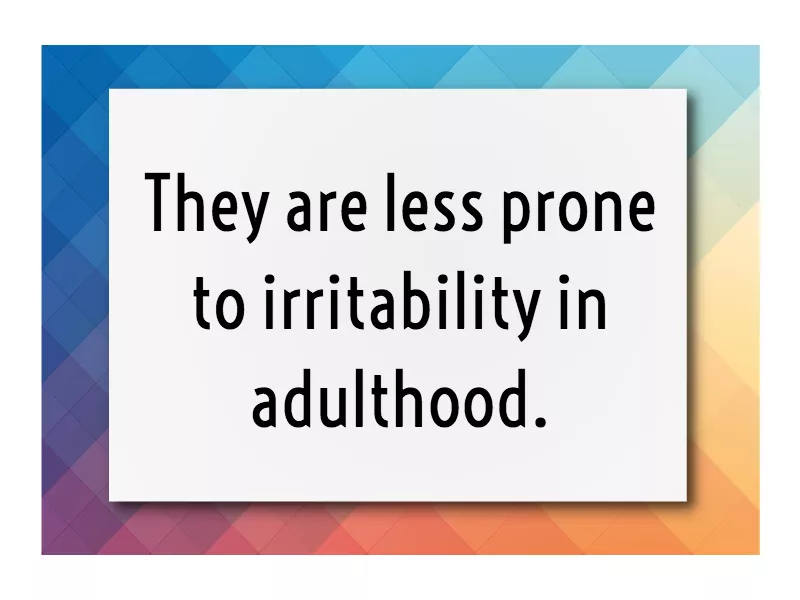
A study by the European College of Neuropsychopharmacology Congress found that a person’s “birth season” may increase or decrease their chance of developing certain mood disorders later in life.
Their findings showed that people born in the winter months were significantly less prone to irritable temperament than those born at other times of the year.
More Likely to Be 105

Along the same lines, individuals born in December were 16 percent more likely to live to age to 105, suggested a study published in “Experimental Gerontology.”
Among the December-born babies in the study, the relative risk of survival from birth to age 105 and beyond was 16 percent higher than the average.
Get More Vitamin D

Babies born in the winter are less likely to develop multiple sclerosis, according to a study from the “European Journal of Neurology.”
This is largely due to the fact that mothers who are largely pregnant in the spring and summer (and giving birth in the winter) get more Vitamin D than those women who are pregnant at other times of the year. Because the extra Vitamin D is said to strengthen muscles and bones, babies born in the winter are also more likely to be athletic.
Likely to Be Leaders, Doctors

Yes, debt collectors. According to a study by the U.K. Office of National Statistics that analyzed the birth months of those in 19 separate occupations, people born in December are most likely to be “messiahs,” both religious and secular, from Jesus to Joseph Stalin, as well as dentists. For January babies, general practitioners and debt collectors are the most common.
Garnering Fame

A study from the “Journal of Social Sciences” showed that the Aquarius zodiac sign is the most popular among celebrities. That means those born in late January and early February have a higher chance of garnering fame.
Reach CEO Status
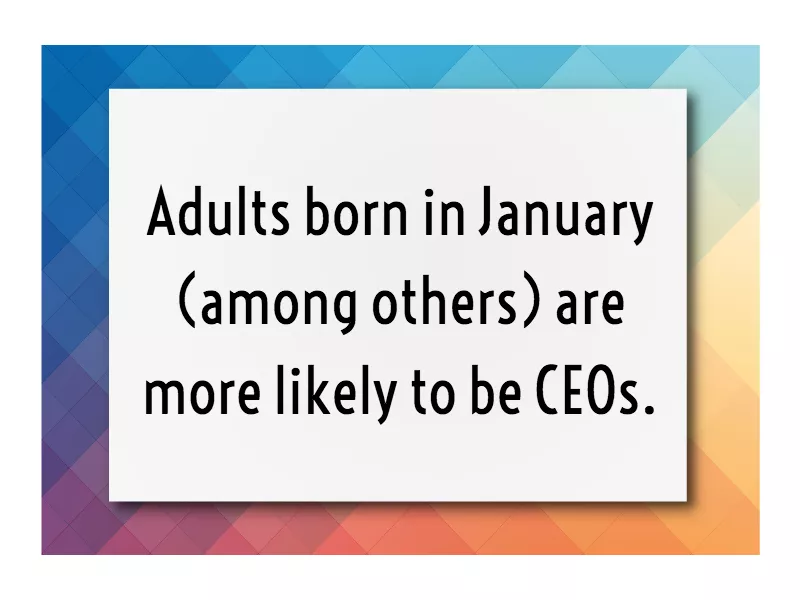
A study published in the journal ”Economic Letters” defined the top five CEO-producing months as March, April, October, November and January.
Pleased Mama
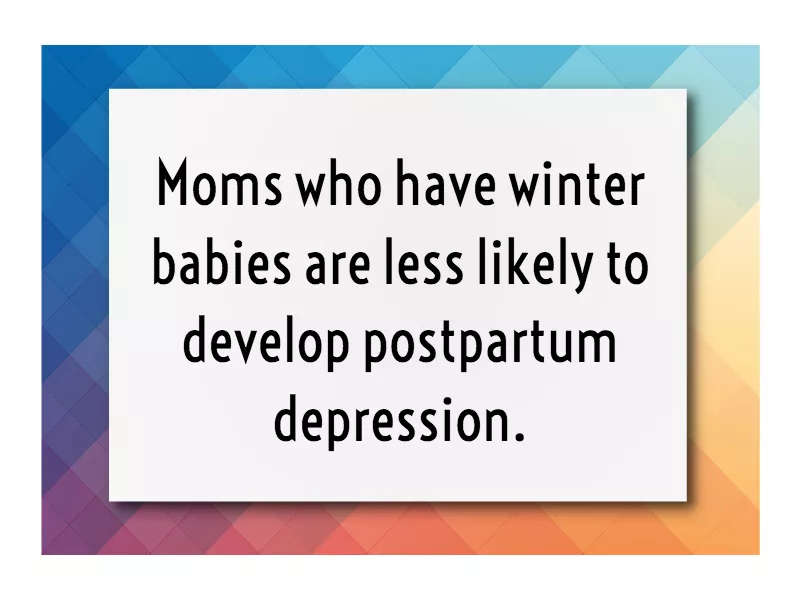
A study by the American Society of Anesthesiologists suggested that women who give birth in winter or spring are less likely to experience postpartum depression than women who deliver in summer or fall.
While this fact isn’t about the baby per se, it’s certainly another reason to try and have a baby during this time period.